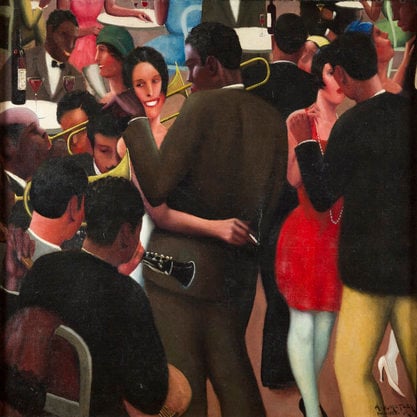Article
Barraine, Elsa Jacqueline (1910–99) By Hamer, Laura
Article
Elsa Barraine’s precocious musical talents were recognized at an early age, and she entered the Paris Conservatoire at the age of twelve. She studied composition with Paul Dukas, harmony with Jean Gallon, fugue with Georges Caussade, and accompaniment with André Estyle. She won the Prix de Rome in 1929. Between 1936 and 1940, and again after the Second World War until 1948, Barraine worked for Radio France. She was active within the French struggle against the Occupation, during the war, by co-founding the Front national des musiciens pour la liberté et l’indépendance de la France, with Roger Désormière and Louis Durey. She was appointed to the teaching staff of the Paris Conservatoire in 1952, working as a professor of sight-reading until 1969, and then as a professor of analysis. Barraine’s compositional process was intricately bound up with her personal humanistic and humanitarian beliefs, and reactions to the tumultuous upheavals of the twentieth century. Despite its raw emotional context, her music (with the exception of the serial Musique rituelle, 1966/67) is essentially tonal and cast within vigorous formal structures. She is recognized as one of the leading French composers of the twentieth century.
